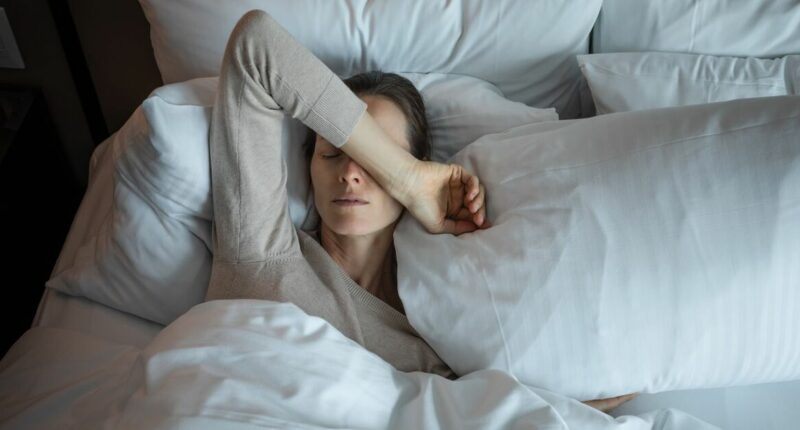Share this @internewscast.com
In today’s fast-paced world, fatigue is a common complaint, but for those grappling with excessive daytime sleepiness, it can severely disrupt daily life. This condition, affecting roughly 1 in every 25,000 individuals, is characterized by what experts describe as “issues with awakening and transitioning from sleep to awake”—a phenomenon often referred to as sleep drunkenness.
For those afflicted, the impact is profound and unrelenting. A Reddit user vividly depicted the experience, likening it to the sensation of having not slept for three consecutive days, regardless of how much rest they actually get. The symptoms are severe: sufferers often feel as if they are intoxicated, struggling to speak, think, or even walk, coupled with an overwhelming urge to return to sleep. Beyond this, they frequently endure hallucinations when falling asleep or waking, sleep paralysis, persistent brain fog, difficulty concentrating, and heightened irritability.
Known as Idiopathic Hypersomnia (IH), this rare disorder affects the central nervous system. Hypersomnolence UK, an organization dedicated to supporting those with the condition, highlights the challenges faced by individuals living with IH on their website.
The organization explains that the condition involves “excessive daytime sleepiness despite sufficient night-time sleep.” This chronic fatigue drastically reduces quality of life, exerting pressure on every facet of a patient’s existence.
Moreover, due to its rarity, individuals with Idiopathic Hypersomnia are unlikely to encounter others with the same condition by chance, which adds an isolating dimension to an already challenging illness.
“Patients are also unlikely to meet another sufferer by chance due to its rarity. This makes for a very isolating illness.
“It manifests as a problem with needing too much and inopportune sleep, along with other issues including daytime sleepiness, which can appear like a loss of alertness rather than sleepiness.”
The NHS described the disorder as ‘when someone sleeps for long periods and wakes up feeling confused or irritable and not refreshed’.
Excessive daytime sleepiness (hypersomnia) is different from feeling tired all the time, the NHS reports, they say if you have hypersomnia, you may: ‘regularly nap during the day, fall asleep during the day, but still sleep for long hours at night’.
The NHS recommend you see a GP if ‘you often fall asleep during the day’ and / or ‘sleepiness is affecting your life’.
Hypersomnolence UK went into detail on symptoms of the condition reporting that ‘chronic excessive daytime sleepiness which may manifest at any time makes it difficult to perform normal daily events, including both work and social activities’
The organisation described how those with the disorder ‘never truly feel awake’ also described as a ‘loss of alertness’.
On their website, Hypersomnolence UK said some potential symptoms are: “Unfragmented sleep for 10 hours or more over a 24-hour period. Patients often report much more, though this may be less in older people.
“Long daytime napping, similar in form to the night time sleep. This is often an unplanned event. This might be throughout the day or episodic.
“Unrefreshing night and daytime sleep. The sufferer wakes up feeling as tired as when they went to bed. (This differs from Narcolepsy where naps are refreshing).
“A problem awakening even with loud alarms, or when being physically awoken. Sleep “drunkenness” upon waking. This is an inability to swiftly transition from sleep to wakefulness – and patients also report being short-tempered in this sleep drunkenness phase.”
Experiencing brain fog and / or problems with memory, attention and concentration were also detailed as potential symptoms by the organisation – and those with the condition have also reported sleep paralysis or hallucinations when falling asleep or waking up.












